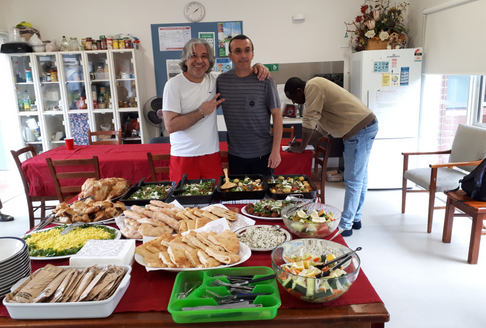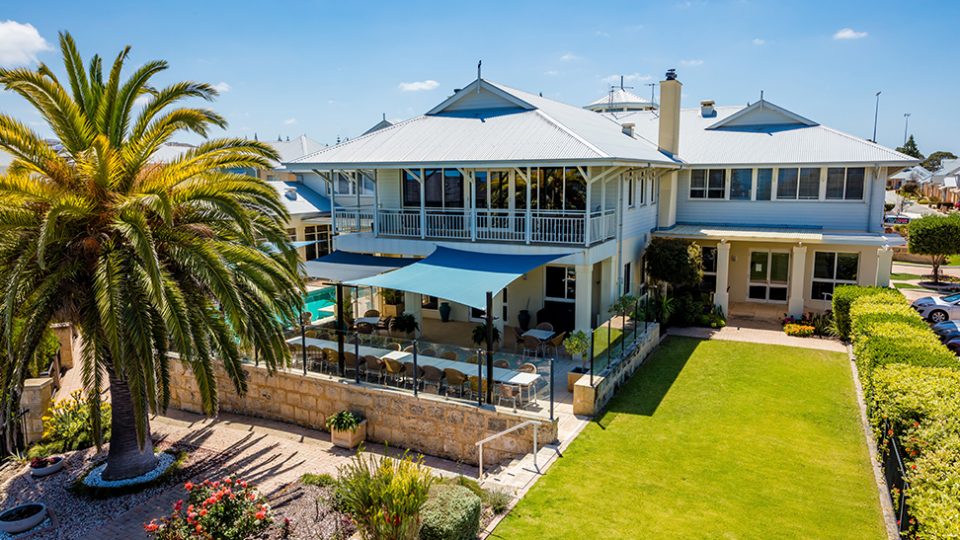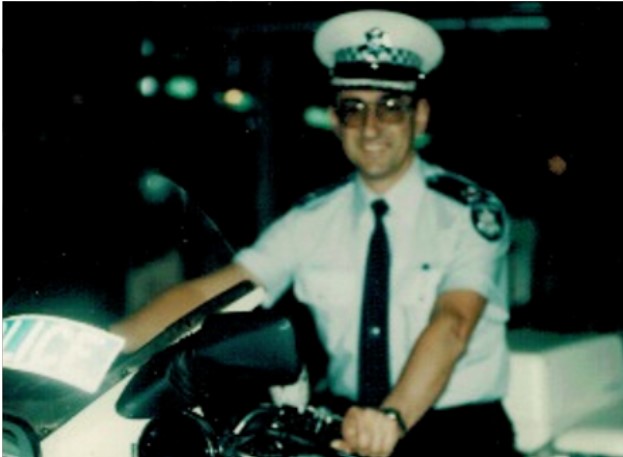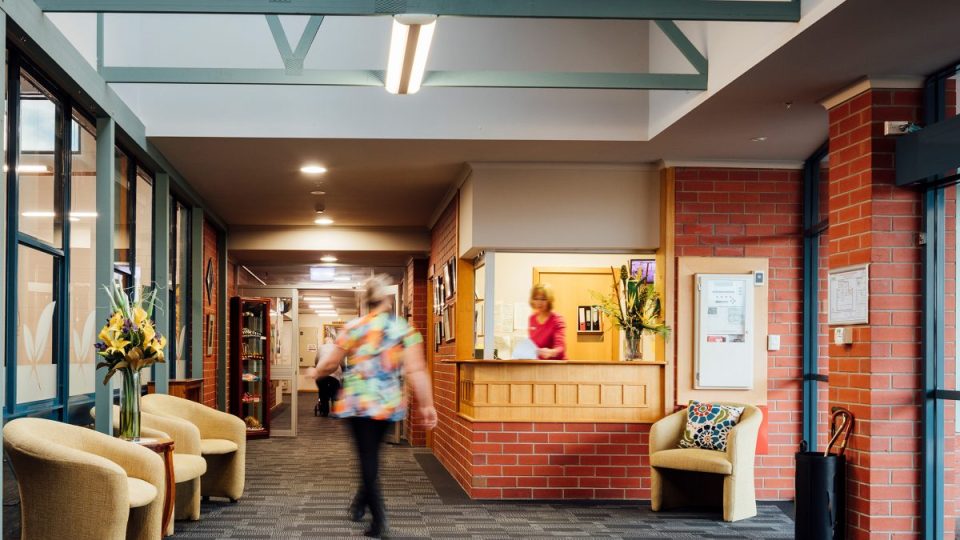A day in the life of a caseworker at Sanctuary — farewell and best wishes, John Mirabile
- 08 Dec 2022

John Mirabile, one of Sanctuary’s most experienced and long-serving caseworkers, recently bid us farewell. His career with Baptcare spanned more than ten years and many eras in asylum seeker policy.
John was farewelled at a very moving lunch prepared and attended by our residents. Their message to him was of overwhelming love and gratitude for all the times he has walked alongside them and been a ‘brother’ in their hardships.
What does a Sanctuary caseworker do?
Casework is a multi-faceted role addressing both the practical and the emotional realms of human needs. The overriding objective is always to help the person gain independence, confidence and the skills to solve their own problems — it’s not as simple as just stepping in and fixing the issue.
The caseworker needs to act like a buddy as well as an advocate: providing information, suggestions, encouragement and advocacy to boost the person’s own abilities and equip them to overcome the barriers confronting them. At the same time, they must ensure that each client’s interests keep moving forward – that essential information is submitted, timelines met, reports prepared, appointments scheduled and attended.
Please consider donating directly towards critical support for people seeking asylum by clicking here
Getting life back on track
Health and legal matters are important areas of life: homelessness is part of a bigger picture of disadvantage and deprivation. The caseworker’s role is to help the person get their life back on track now that they have housing at Sanctuary.
In a typical day, John would deal with residents’ routine health needs — explaining hospital letters, providing information about transport so that residents who don’t speak English can get to their appointments, providing MYKI (public transport) top-ups if the person is without income, sometimes accompanying them on medical visits to ensure that they find the correct clinic and that an interpreter is present.
John frequently accompanied residents to the city offices of Home Affairs to be the familiar and kindly face they can look to for explanation about their case
On many occasions, he has dealt with pressing health emergencies amongst his clients — suspected heart attacks, acute mental health crises and injury and illness arising from self-harm (which is itself the expression of despair and devastation). Caseworkers are not health-trained so the limits of their intervention are a fast assessment, calling emergency services, providing first aid, staying on hand to facilitate communication and then giving trusted emotional support to the distressed person.
The major concern of people seeking asylum is their application for protection — getting a visa to enable them to stay and work rights to earn income and access Medicare support. Caseworkers dig deep and search widely to secure pro-bono legal assistance for their clients so that they can get informed advice in the very complex and specialist field of immigration law.
When people have been homeless, their documents can be hopelessly soiled or lost – caseworkers help with recovering and replacing lost credentials. Ensuring complex correspondence is made more accessible by discussing it with the person is another important aspect of the job, as is sitting with them to provide support and reassurance when challenging news is provided by their lawyer. John frequently accompanied residents to the city offices of Home Affairs to be the familiar and kindly face to look to for support and explanation about their case.
A path to independence
Other areas include residents’ efforts to find work — getting resumes into shape, making applications and assisting in interview preparation, helping with clothes for the interview, coaching to ensure that expectations and behaviours are appropriate for the workplace. For those who don’t have work rights, or who can’t find work, help obtaining income supplements or emergency relief is vital.
The essence of John’s greatness is that he listens to and respects his clients’ hope
Most people seeking asylum have no eligibility for Centrelink payments and live precariously. John and the casework team distribute vouchers – $40 per month per person is the limit that we can provide but we also access other sources of assistance to allow for basic needs to be met. Through the Sanctuary Foodhub, a ministry of the West Preston Baptist Church, rescued food is collected and distributed to residents, ensuring a continuous supply of nutritious meals.
A message of hope
The overwhelming issue for many people seeking asylum is hope — the hope for a visa and the opportunity to make their home in Australia, to be reunited with their families and to be able to work and pay their way. Many residents at John’s lunch affirmed that the essence of John’s greatness came from the fact that he listened to and respected their hope. The tears and speeches at the lunch table were the proof of that.
Community news
-

BaptistCare to acquire Keyton’s Western Australian retirement village portfolio
BaptistCare is pleased to announce that we have entered into an agreement to acquire Keyton’s portfolio of retirement villages in WA.
- 13 Nov 2025
-

Spotlight on Residents: Reg Baker
At Baptcare, we are always delighted to learn more about our residents’ lives. They are often filled with excitement, joy, and adventure, and it truly reminds us how rich a person’s life is—and continues to be—when they join one of our residential aged care communities. Today, we are honoured to share the remarkable story of one of our residents, Reg Baker, who lives at Baptcare Peninsula View Residential Aged Care community.
- 10 Nov 2025
-

Staff spotlight | Leonie Irvine – 35 years of service in aged care
Leonie is one of our dedicated Lifestyle Assistants at Karingal Residential Aged Care community in Devonport, Tasmania. She recently celebrated an incredible milestone - 35 years of continuous service at Baptcare. In a sector where long-term service is increasingly rare, Leonie’s 35-year journey stands out as something truly special.
- 10 Nov 2025
